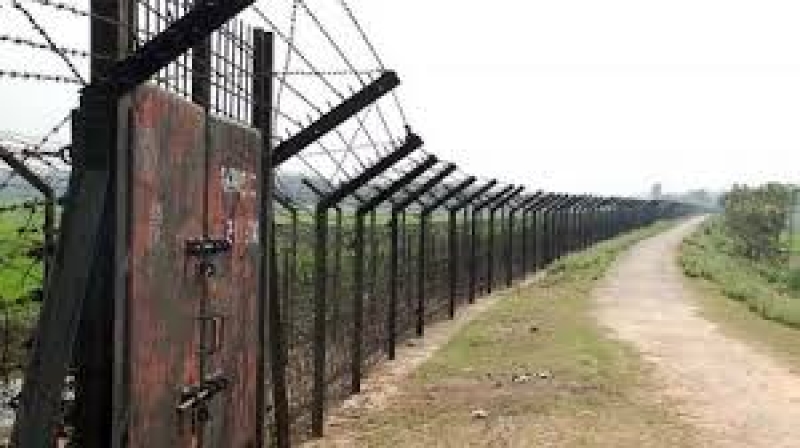- CA Yunus pays homage to Liberation War martyrs on Victory Day |
- Bangladesh capital market extends losing streak for second day |
- Bangladesh celebrates Victory Day Tuesday |
- 'Different govts presented history based on their own ideologies': JU VC |
Feni Border Becomes Gateway for Illicit Cross-Border Movement

The Feni district—particularly the Parshuram and Belonia border areas along India’s Tripura state—has become a growing hotspot for unauthorized border crossings, sparking alarm among law enforcement and border security forces.
In the last five months alone, Border Guard Bangladesh (BGB) has detained six African nationals attempting illegal entry, pointing to what appears to be a well-organized human trafficking network operating across the frontier.
From November 1, 2024, to April 7, 2025, BGB recorded multiple infiltration attempts, mainly involving nationals from countries including Nigeria, Sudan, Ethiopia, Somalia, and Tanzania. Officials say the infiltrators often claim to have lost their travel documents, while their mobile phones are either disconnected or wiped, making it difficult to trace communication patterns or contacts.
Once apprehended, the detainees are presented in court and frequently granted bail—allegedly with the help of local legal facilitators tied to trafficking syndicates. Following their release, these individuals reportedly reconnect with their networks via WhatsApp using foreign numbers, then regroup and attempt further cross-border movement.
“This level of organization is deeply concerning,” said Lt. Col Md Mosharraf Hossain, Commandant of BGB Battalion-4. “Despite our strict surveillance, infiltration attempts persist. We suspect a transnational trafficking racket exploiting the Feni border.”
One such incident occurred last Sunday night when 33-year-old Tanzanian national Amina Shahbani was caught trying to cross into India through the Nijkalikapur border. She was allegedly escorted from Feni’s Mohipal area by two Bangladeshi locals, Abdul Motaleb and Sumon. A case has been filed against seven individuals in connection with the incident.
Other notable detentions include:
Ethiopian national Israt Umar Haji (67) in November
Nigerian national Emika Gilbert Apeh (45) in December
Sudanese citizen Islam (26) in January
Somali national Abdiwali Mohamed Ali and Nigerian Nawsu Izuchukwu Calistas in March
Local sources suggest that traffickers prefer the Nijkalikapur and Mirpara-Belonia routes, citing weak surveillance and possible local collusion. On November 25, Indian police detained two Bangladeshi nationals—Raju and Mohammad Ibrahim—for alleged involvement in human trafficking.
In another incident, a Sudanese national and a 50-year-old local man named Emran were arrested in January for cross-border smuggling.
Authorities believe that many of these individuals intend to ultimately reach Europe, where they seek political asylum. Brokers reportedly assist them in obtaining refugee documentation—such as UNHCR cards—allowing them entry into refugee camps and enabling asylum claims.
Somali national Abdiwali Mohamed Ali, for instance, was found carrying a UNHCR-issued refugee card reportedly obtained in India.
“We are tracking an organized gang facilitating these cross-border movements,” said Mohammad Nurul Hakim, officer-in-charge of Parshuram Model Police Station. “The investigation is ongoing, and we are working to identify everyone involved.”
Feni Superintendent of Police Habibur Rahman noted the detainees often provide conflicting or vague responses during questioning. “Despite being remanded, many refuse to share key information. Some even go on to secure legal visas after obtaining bail,” he added.
With trafficking networks exploiting legal gaps and relying on local support, the Feni border remains a vulnerable pressure point. Authorities have heightened vigilance—but the persistence and sophistication of these infiltration attempts highlight the need for stronger bilateral coordination and crackdowns on trafficking networks operating across the region.

